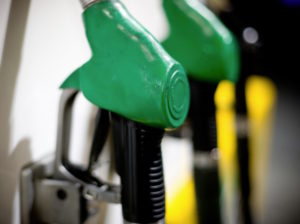Fuel duty cut rumours spark mixed reaction
Rumours that the Prime Minister is planning to slash fuel duty by 2p per litre have met with a mixed reaction, winning favour with those campaigning for drivers but coming under fire from environmentalists.

Former chancellor Philip Hammond has previously said the fuel duty freeze had cost the Exchequer around £46bn in lost revenues from 2010 through to 2018-19.
According to a report in The Sunday Times, work by the Prime Minister’s team on a populist emergency budget in October, will see fuel duty cut for the first time in almost a decade winning over 37 million UK drivers, while a general election could also be held the same month.
Fuel duty, which stands at 57.95 pence per litre for petrol and diesel, has been frozen by the Government for nine consecutive years.
The FairFuelUK campaign group has welcomed the rumours about an imminent cut, which it says would be an incredible boost to the UK’s economy and even more resultant growth tax income to the exchequer, adding: “It is total common sense and a vote winner.”
Robert Halfon, MP and FairFuelUK supporter, said: “For nearly 10 years, with FairFuelUK, I’ve been campaigning to cut fuel duty. Everywhere you look, drivers are hit by taxes and demonised for having no choice but to use their vehicles… The Prime Minister and the chancellor’s common sense support of the commercial heartbeat of the economy must be welcomed. It’s the right time the financial strain on the backs of hardworking motorists was alleviated.”
However, any such move could bring contention elsewhere.
Last year saw the then-chancellor, Philip Hammond, say the fuel duty freeze had “come at a significant cost to the exchequer” after having previously pointed out that the move had cost around £46bn in lost revenues from 2010 through to 2018-19.
But, he acknowledged at the time that “the high oil price and the near-record pump price of petrol and diesel are also imposing a significant burden on motorists”.
However, FairFuel counters that such a claim was a “lie” and points to modelling carried out by the chancellor’s own department in 2014, which indicated that keeping fuel duty down would increase gross domestic product by up to 0.5%.
The Freight Transport Association also said there would be widespread benefits of a fuel duty cut, with policy director Christopher Snelling commenting: “A cut would massively stimulate the UK economy whilst mostly paying for itself as Government would get more tax from other sources as a result. Fuel duty is a blunt tax that does little for environmental purposes in haulage, as currently there is no alternative to diesel in the mass market and the goods still have to be delivered.”
Yet, according to reports, Ministers have expressed concerns about the affordability of cutting fuel duty, while there has been recent conjecture over the fuel duty freeze and its impact on encouraging people to keep using cars rather than public transport alternatives. A report published last week by MPs from the Science and Technology Committee – which calls for car usage to be cut to meet emissions targets – highlights the damage caused by the fuel duty freeze since 2010, especially when rail prices and bus prices have risen every year over the same period. The nine previous freezes in fuel duty are estimated to have increased traffic and carbon emissions by 4% – as well as costing the Treasury over £6bn per year.
And a report published two weeks ago by liberal conservative think tank Bright Blue on cutting air pollution puts forward recommendations including lifting the fuel duty freeze and applying a ‘diesel duty’ surcharge.
The Greener Journeys campaign to encourage more trips by bus and coach has questioned the merit of a fuel duty cut – as it asks whether the PM should contemplate such a move.
The organisation’s research has demonstrated that the freeze in fuel duty since 2011 means that the price of fuel at the pump has been cut by 13% in real terms. The resultant 4% increase in road traffic emissions equates to an additional 4.5 million tonnes of CO2, an additional 12 thousand tonnes of NOx and 816 tonnes of PM10s; and up to 200 million fewer bus journeys and 60 million fewer rail journeys.
Claire Haigh, chief executive of Greener Journeys, commented: “If we are serious about tackling climate change and air pollution, why would we make such drastic reductions to environmental taxes? Government must do more to promote public transport. At the very least fuel duty should be linked to inflation in future budgets. The money raised from future increases in fuel duty should be ringfenced to accelerate the switch to electric vehicles and to encourage greater use of public transport.”
Friends of the Earth also condemned any possible fuel duty cut. Aaron Kiely, Friends of the Earth climate campaigner, said: “Our children are breathing in damaging dirty air, parts of the planet are on fire, and the Chancellor wants to put in place measures to encourage more driving?
“It’s outrageous for the Government to pay lip-service to the climate emergency while cutting fuel duty at home. This seems like such a backwards step when people across the country are clamouring for government action to fix the climate crisis.
“For the sake of our health and the health of the planet, we should be investing in world-class public transport to help people cut down on their car use, not encouraging more.”












